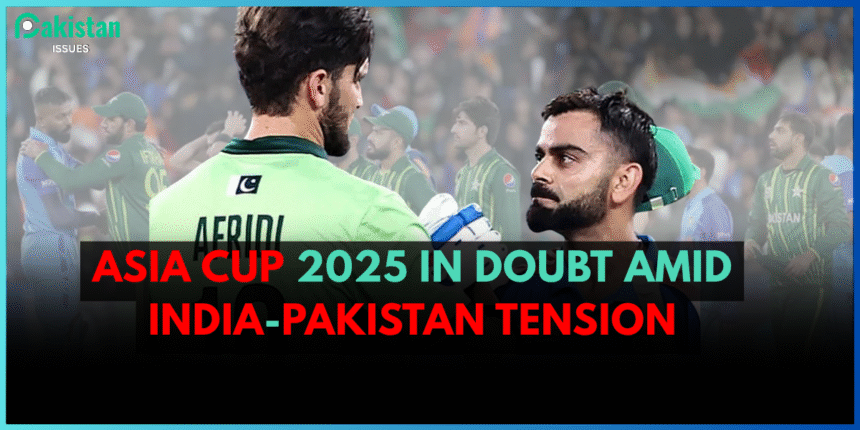The Asia Cup cricket tournament is currently left in doubt due to increased political tensions between India and Pakistan. Once again it is an important event on the cricketing calendar. It is the Asia Cup that unites the classes cricket teams on the continent for competition within the spirit of sport and rivalry, but presently the whole atmosphere is punctured by the tensions from both countries and speculation over whether this year’s tournament will go ahead as normal.
Cricket has been a rare available mode of communication between both countries over the years that included many political and social problems. And despite the overwhelming political issues, fans – from both countries – have been able to see their nations watch a high-profile cricketing contest that has transcended sport and become intertwined with a nation’s pride and passion. Diplomatic undercurrents have now come into view and it is unclear what the potential implications to the Asia Cup are, in addition to uncertainty around Pakistan’s involvement and security as priority in the tournament planning process.
Based on sources knowledgeable of the cricket boards, negotiations are reportedly focusing on scenarios that would allow for the tournament to proceed based on factors related to sportsmanship and safety. Right now, it seems the BCCI and PCB have a cautious optimism, however they have given no indication about specific plans. The ACC on the other hand is actively monitoring the situation and could make alternative arrangements if needed.
Beyond that, the geopolitical situation is still not safe for sport – the tensions have been inflamed in recent weeks by incidents at the border and political discourse from their respective governments, which adds complications when it comes to the logistics of a game with India and Pakistan.
Analysts and cricket fans have all called for calm and for people to embrace sport as a bridge, not a chasm between two countries. Most people are optimistic that the Asia Cup could provide the opportunity to build bridges and allow constructive conversation to be facilitated through sport. However, the idea of light-diffusing, dialogue-enhancing opportunities from the sport is still a fragile thought in light of recent escalation.
As the tournament dates approach, the attention now shifts on the organizers and governments with bated breath to see how the two countries will deal with the issue. Most fans alike have one objective—hopefully a peaceful resolution to allow the Asia Cup to go proceed which would allow the players to perform international cricket at the highest level, and at the same time, allow the passionate supporters of both teams to enjoy the sport they love without distraction, which is the most important thing for everybody.
In a nutshell, the Asia Cup 2025 has come to a precipice to juggle the love of cricket with inter-national politics. The next few weeks will be critical to see if cricket’s perceived status as a unifying force can transcend division.










